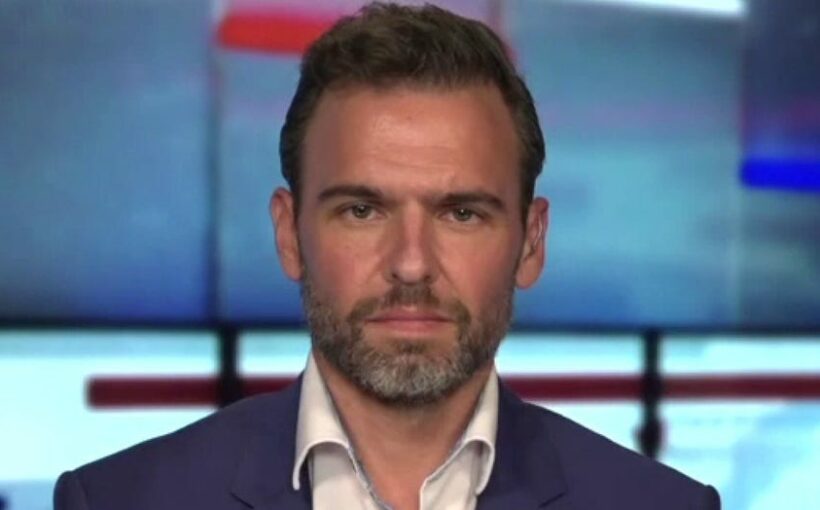Virginia’s children incentive for voters to get to polls: Ian Prior
Former DOJ spokesman Ian Prior weighs in on parental involvement in the gubernatorial election.
Loudoun County, Virginia was the epicenter of a parents’ movement for the past seventeen months. It began over the summer of 2020, when moms and dads began organizing and pushing its school board to re-open schools.
Meanwhile, Loudoun County Public Schools was focused on something else – embarking on a massive social justice overreach based on a false narrative that the school district was “systemically racist” because of the sins of the past.
That false narrative was aided by racially discriminatory focus groups, teacher trainings grounded in critical race theory, and a cooked-up report all by a company called “The Equity Collaborative,” which billed Loudoun County taxpayers $500,000 in 2019, and was retained through 2021 at $625 per hour.
When parents spoke out against this, they were targeted for cancellation by “The Anti-Racist Parents of Loudoun County,” a private Facebook group that included six school board members.
This led several of us – Democrat and Republican – to form an organization called Fight for Schools, which would attempt to use a legal process to remove these school board members from office. It required gathering thousands of signatures to submit to the court and, while tedious, this process brought together hundreds to volunteer.
Loudoun residents couldn’t wait to sign and join this movement, which was further energized when a teacher named Tanner Cross was put on administrative leave for exercising his First Amendment rights at a school board meeting concerning a proposed transgender policy that, among other things, would have required him to potentially violate his religious beliefs by using students’ preferred pronouns. That policy would also allow children to use the bathrooms of the gender with which they identified, something that would rock the community months later.
While the buildup over the summer was intense, the events of the fall turned parental rights and education into THE issues in the Virginia elections.
First, former Democratic Gov. Terry McAuliffe said in a debate that “parents shouldn’t be telling schools what to teach.”
Second, the National School Board Association sent a memo asking for the Department of Justice to utilize domestic terror provisions to investigation parents that were showing up at school board meetings. When the Department of Justice complied and issued its own memo under the name of Attorney General Merrick Garland, parents everywhere became even more fired up.
Lastly, the Daily Wire broke a story explaining that a father who was arrested at the Loudoun County School Board meeting on June 22, and became the national poster boy for angry, violent parents, was there because his daughter had been sexually assaulted in a school bathroom in May.
Making matters worse, the school board and superintendent knew about it and the superintendent went un-contradicted when, at that same meeting, he denied that there were any records of sexual assaults in bathrooms.
The assailant was quietly transferred to another school where he allegedly sexually assaulted a second girl in October. Sadly, this apparent cover up happened so that the school board could pass the very transgender policy that Tanner Cross spoke out against in May.
As McAuliffe, his surrogates, and some in the media worked overtime to gaslight Virginians that parents were conspiracy theorists, more and more parents became engaged.
As Fight for Schools finished collecting signatures to go to court with the remaining four school board members (one of the original six resigned and another passed away over the summer), Republicans, Democrats, and independents would eagerly sign our removal petitions and tell us that they were fed up with political activism in schools.
That frustration played out in the election as well. As a result, Republican gubernatorial candidate Glenn Youngkin, who had been championing education and parental rights throughout his campaign, received overwhelming support from independents, a gain in moderate Democrats, and significant inroads with minority voters.
He was able to do it not by playing identity politics, but by appealing to what is more important than people’s “identity” – their children. Meanwhile, Winsome Sears, a female, Black, immigrant, former Marine, and Jason Miyares, a Latino man whose mother escaped from Cuba, also won their races. Sears will be the Commonwealth’s next lieutenant governor and Miyares will serve as attorney general.
Their wins were not about their race, gender, or ethnicity, but rather on the fact that they were better candidates that spoke to issues like education, safe communities, and an optimism for the future.
There are two things that people should take away from this election.
First, the politics of grievance, identity, and division should be shoved in the dustbin in favor of optimism, substance, and listening to everyone’s point of view.
Second, parents fighting for a better future for their children are more powerful than special interests, billionaire donors, and career politicians with a machine behind them.
If the left continues to double-down against parents with the tired identity politics of the past decade, they will continue to lose.
Source: Read Full Article




